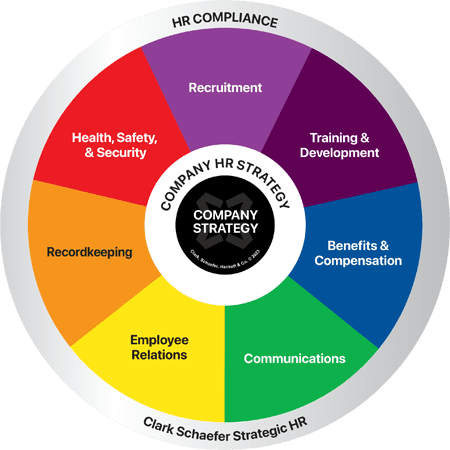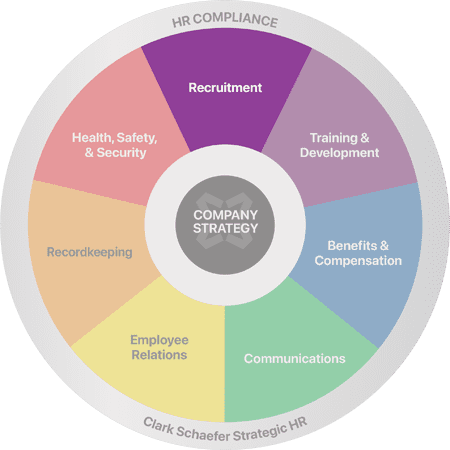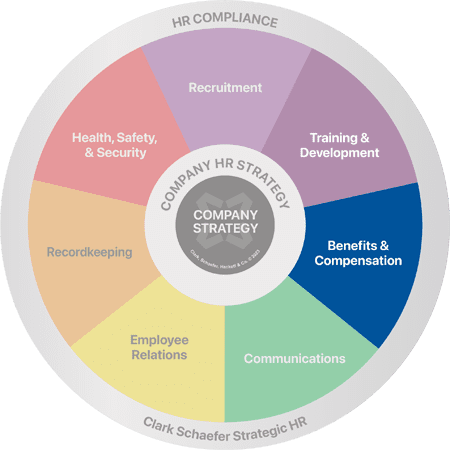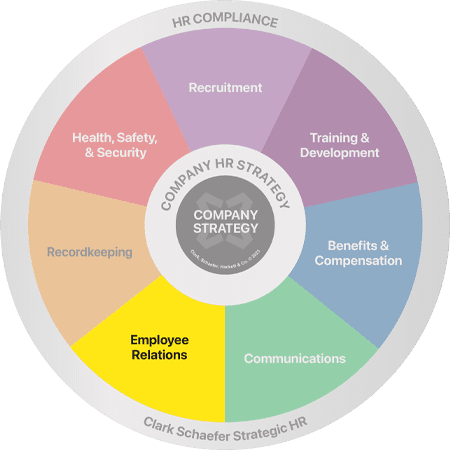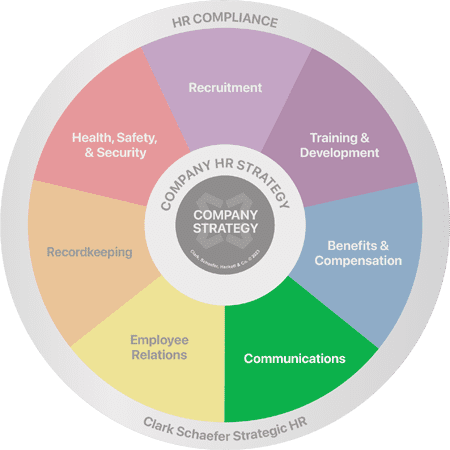The ABC’s of Diversity, Equity, and Inclusion (DE&I)
Last Updated on January 11, 2022 / HR Strategy
“The privilege of a lifetime is being who you are.” ~ Joseph Campbell
“…and not being penalized for it.” ~ Robin Shabazz, JD
By Robin Throckmorton, MA, SPHR, SHRM-SCP:
Last week, I had the honor of emceeing the Clermont County Chamber of Commerce’s Top Talent event – “The ABC’s of DE&I.” I can confidently say it was by far one of the best events I have ever attended; and one of the timeliest. As we virtually gathered to discuss how we as a business community could embrace Diversity, Equity, and Inclusion, we all felt the weight of the recent deaths of George Floyd, Breonna Taylor, Ahmaud Arbery, and the ensuing protests across the country. Ready with notepads and a willingness to learn, all 50+ attendees were on the edge of our seats, taking copious notes as we listened to the powerful group of speakers that day.
Robin Shabazz, JD with The Eastledge Group LLC kicked off the event with an extremely informative and impactful keynote on DE&I and why it matters. Then, she facilitated a dynamic panel of representatives: Arlene Koth former Director of HR for Triversity; Juan Herrera, Head of Diversity and Inclusion for American Modern; and Julie Heard, Director of Diversity, Equity and Inclusion for the Cincinnati Opera.
The lessons these four speakers shared with us echoed in my head throughout the day, prompting me to quickly connect with my team just to share the immediate impact of the event. A week later, with continued reflection, I want to share some of the key take-aways that will have a lasting impact on our DE&I approach.
Diversity, Equity, & Inclusion
First, Robin Shabazz shared her definitions of Diversity, Equity and Inclusion:
“Diversity includes all the multiple identities of employees across visible and invisible characteristics. Inclusion is how we leverage the experiences of our diverse workforce. Equity is the systemic elimination of barriers, providing fair treatment, access and opportunity for ALL to succeed.”
HR individuals and leaders have been working to implement diversity initiatives for years. Not to say that those efforts aren’t outstanding and necessary; however, to truly eliminate racism, we also need to take action towards equity – helping each individual (regardless of their race) truly belong. Robin made it perfectly clear: belonging matters.
HR leaders need to create a culture of belonging where everyone feels they are not only an important member of the group, but that they can be diverse and still respected. Belonging is not just “fitting in.” Simply “fitting in” means that a person is being who you want them to be, rather than themselves. The true meaning of belonging, and the one we need to all embrace, is actually being who you are and being valued for it.
A Powerful Panel
As Robin and the panelists continued to share their personal insights, they left us with key action items that leaders can take in order to prepare themselves for conversations with employees about racism and how it’s affecting the world. Leaders need to evaluate themselves and see what changes they need to make first. In particular, when leading a discussion, white leaders should start by recognizing “I don’t know what it’s like to be black.” This can help start the conversation and show that they are open to learning from perspectives outside of their own. In those conversations, ask “what else can I do for our team?” Listen, and respond with the tools that they may need to answer their questions.
But action cannot be limited to just leaders. Each individual has the opportunity to make a positive difference, even if it is as simple as saying “I’m sorry” when mistakes are made, and learning from it. By surrounding ourselves with others who are different from us, and by admitting vulnerabilities and learning from them, we begin to break down the biases that stood in the way in the first place.
As we approach and work towards successful change for all, one of the biggest challenges we will face is our biases. Not all biases are bad – in fact, a bias only becomes “bad” when it starts to oppress others. When biases begin to twist the outcome of even our best intentions, it is critical to address negative bias every single time. This isn’t easy. It takes work – internally and externally. And while we can’t change other’s biases, we can help others become aware of them and ask others for help to ensure our biases don’t impact us negatively.
Steps Forward
In our organizations, it is important to go beyond diversity and to place equal emphasis on equity AND inclusion. A diversity initiative often means setting goals and committing to meet them. For example, if you want to hire a diverse workforce, you need to create an environment in which diverse individuals not only come to work for you, but want to stay working for you because of the welcoming and embracing culture you enact. To create this culture, you’ll need every team member to play a role in making the change and making it stick by holding everyone accountable. Then as you hire, you’ll need to “de-bias” your hiring practices by creating clear job competencies as well as building a diverse pool of candidates. Hire the best candidate using diversity as one factor but not THE only factor. As an organization, it is critical to recognize that diversity benefits both employees and the organization while continuing to work towards removing barriers that may be present. The panelists made an excellent point: DE&I is not a program or initiative that will go away when the next “shiny object comes around.” Rather, this is an initiative that is here to stay – and needs to stay.
When we as a society can work together to create a culture or a world supported by diversity, equity, and inclusion, we will all benefit. For many organizations, leaders and employees must be willing to be uncomfortable and have uncomfortable conversations. But by leading those conversations with an eagerness for learning, development, and understanding, the benefits to an organization that values diversity, equity, and inclusion are limitless.
Strategic HR has had the privilege of working with a number of outstanding individuals with a passion and skill for DE&I. As you evaluate what you and your organization can do to make an impact, feel free to reach out to us. In the meantime, the Clermont County Chamber of Commerce has made the recording of this two-hour program available to the public for a fee of $35. We’d encourage you to set aside two hours to view an amazing and inspiring program.

